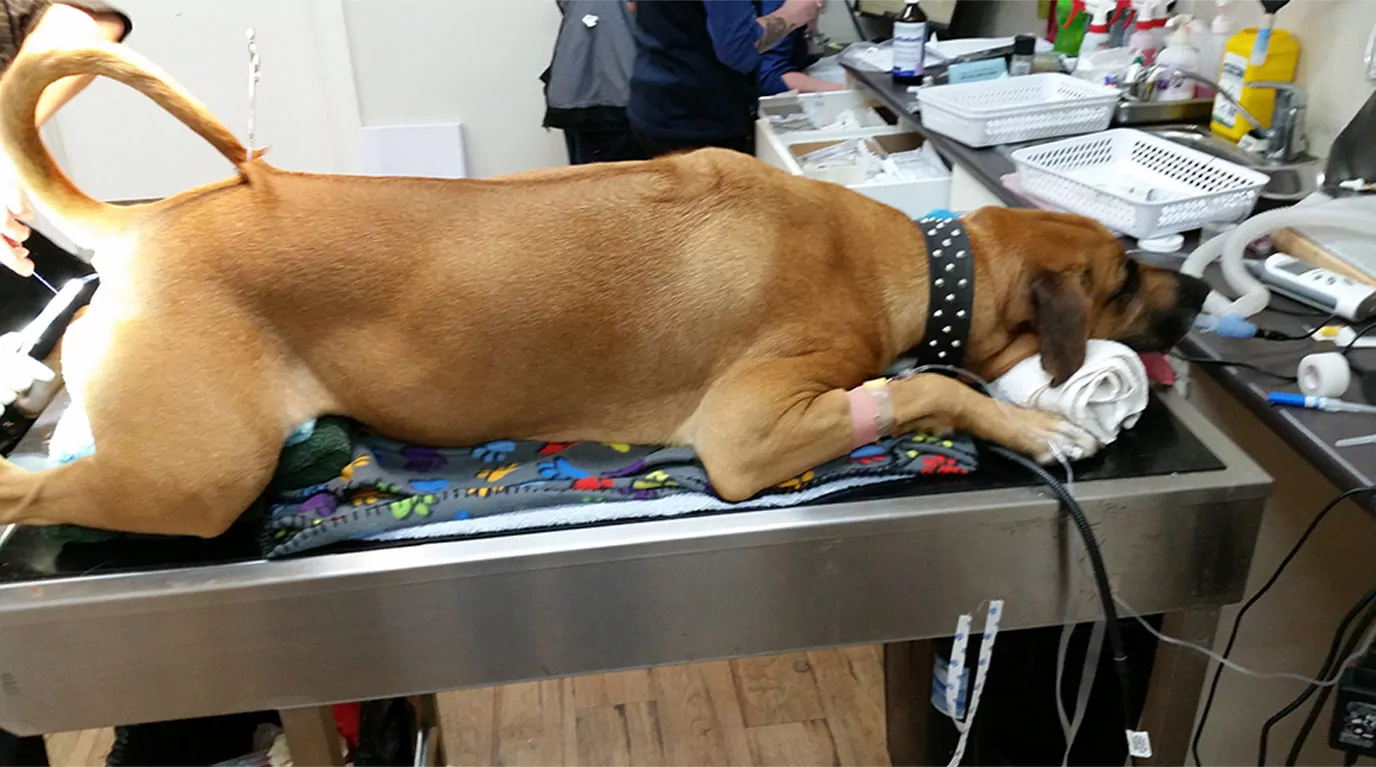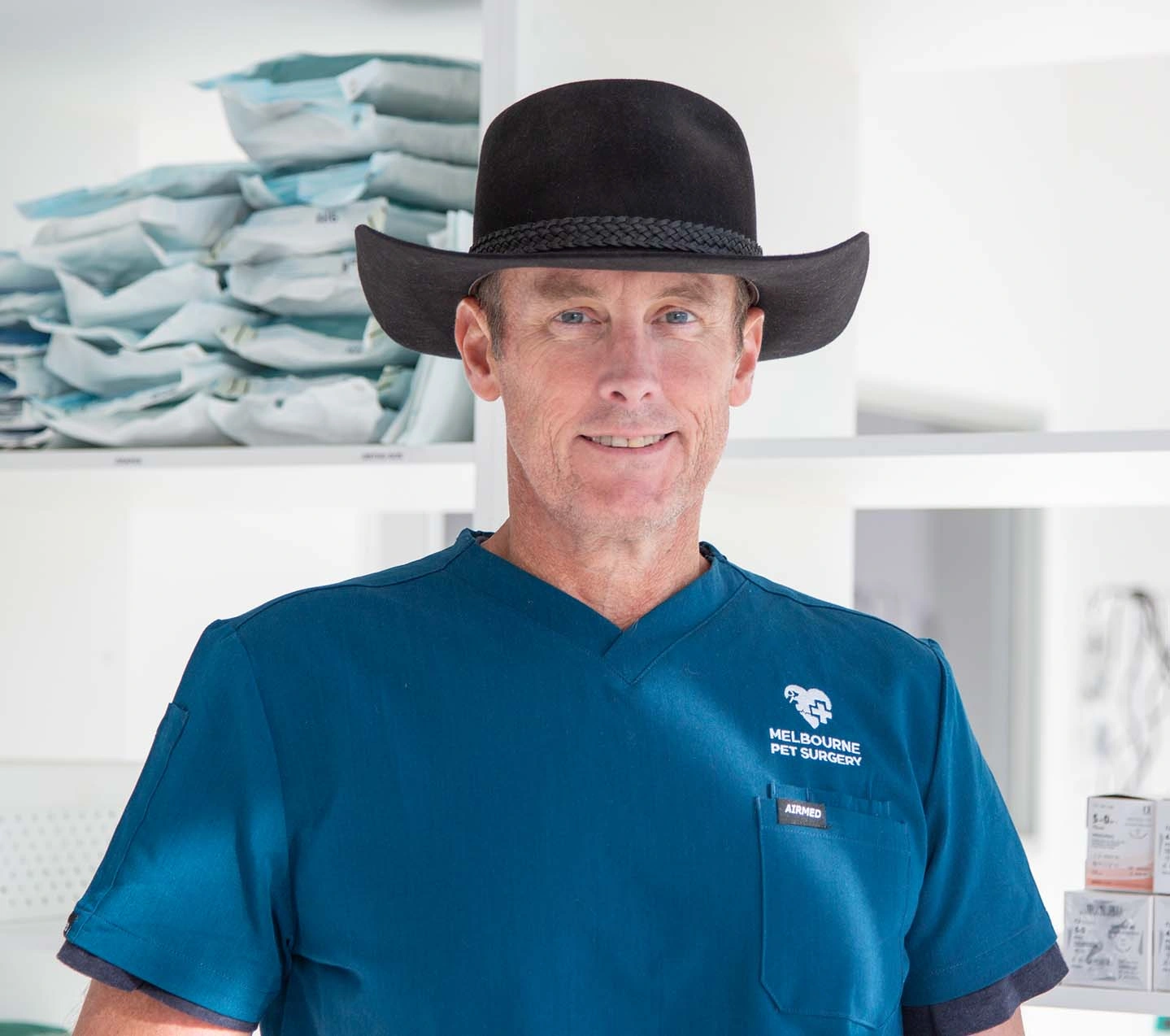Anal Gland Adenocarcinomas
What is anal gland adenocarcinoma?
Whilst we are sometimes lucky to find these tumours during routine examinations (when performing vaccinations or other consultations), they are usually diagnosed after a pet’s owner has noticed other symptoms. These commonly include a lump or swelling underneath the tail, or repeated straining to pass stools.
As this cancer isn’t rapidly growing, surgery can often add significant time to your pet’s life expectancy (as much as a year in some cases). The addition of chemotherapy to the treatment plan can increase their lifespan by as much as two years.
Procedure cost
Depending on the complexity of the procedure, the removal of anal gland adenocarcinomas generally costs between $2,000 and $2,600 at Melbourne Pet Surgery. If sublumbar lymph nodes are also being removed, an additional $600 to $800 will be added to the cost.
Optional pre-anaesthetic blood test available for all surgeries (additional cost)
Recovery and aftercare
Your pet will generally be able to return home on the same day as the surgery, where you will be able to provide them with pain relief in the form of opioids and NSAID as well as antibiotics. Your dog will need to return to the hospital two weeks after the surgery to have the sutures removed.

.webp)
